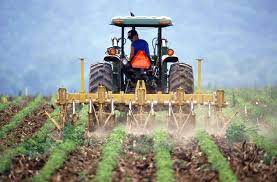Agriculture is a crucial sector that provides food, fiber, and fuel for a growing population. The success of the agricultural industry relies heavily on the development of skilled and knowledgeable professionals who can navigate the challenges of modern agriculture. Agricultural education and professional development programs play a crucial role in fostering the next generation of farmers and ensuring the future of agriculture.
The Importance of Agricultural Education

Agricultural education is important because it provides individuals with the skills and knowledge necessary to succeed in the industry. Through formal education programs, students receive a solid foundation in subjects such as agronomy, animal science, and horticulture, as well as business and management skills, which are essential for running a successful agricultural operation.
Agricultural education also prepares individuals for the challenges of modern agriculture, including advances in technology, changes in market demands, and increasing competition. By fostering a new generation of skilled and knowledgeable professionals, education helps to ensure the future success of the industry and secure the food supply for future generations.
Agricultural Professional Development Programs
Agricultural Professional Development Programs (PDPs) are training and educational programs designed to help individuals in the industry improve their skills and knowledge. These programs are aimed at individuals at all levels of the industry, from entry-level workers to managers and executives. The goal of PDPs is to improve the overall quality and competitiveness of the agricultural industry by providing individuals with the latest knowledge and best practices in the field.
PDPs can take many forms, including workshops, seminars, online courses, and certification programs. They cover a wide range of topics, including sustainable agriculture, farm management, marketing and sales, and food safety. The programs are often taught by experienced professionals in the field and provide hands-on learning opportunities, allowing participants to apply what they have learned in real-world situations.
PDPs can be beneficial for both individuals and the industry as a whole. For individuals, PDPs can help them advance their careers, improve their job performance, and increase their earning potential. They also provide opportunities to network with other professionals in the field, which can lead to new business connections and job opportunities.
For the industry, PDPs can lead to improved efficiency, better-quality products, and increased competitiveness. Improved knowledge and skills among workers can lead to increased productivity, lower costs and higher customer satisfaction. Additionally, the industry benefits from having a pool of skilled and knowledgeable workers who are equipped to address challenges and take advantage of new opportunities.
In conclusion, Professional Development Programs play a critical role in the growth and success of the agricultural industry. They provide individuals with the skills and knowledge needed to succeed in their careers and help to improve the overall quality and competitiveness of the industry.
Benefits of Agricultural Education and Professional Development
Agricultural education and professional development provide numerous benefits for individuals and the industry as a whole. Here are a few of the key benefits:
- Career Advancement: Agricultural education and professional development programs offer individuals the opportunity to advance their careers by improving their knowledge and skills. This can lead to promotions, higher salaries, and better job security.
- Improved Knowledge and Skills: Education and professional development programs provide individuals with the latest knowledge and best practices in the field, allowing them to stay current with industry trends and improve their job performance.
- Increased Productivity: By providing individuals with the latest information and techniques, agricultural education and professional development programs can lead to increased efficiency, better-quality products, and higher yields.
- Networking Opportunities: Education and professional development programs provide opportunities for individuals to network with other professionals in the field, which can lead to new business connections, job opportunities, and collaborations.
- Enhanced Competitiveness: The industry benefits from having a pool of skilled and knowledgeable workers who are equipped to address challenges and take advantage of new opportunities. This can lead to increased competitiveness for both individuals and the industry as a whole.
- Better Understanding of Industry Issues: Agricultural education and professional development programs provide individuals with a better understanding of the key issues and challenges facing the industry, allowing them to make informed decisions and address problems effectively.
- Improved Agricultural Practices: Agricultural education and professional development programs promote sustainable agriculture practices, which can help to protect the environment and ensure a bright future for the industry.
Challenges Facing Agricultural Education and Professional Development

Despite the numerous benefits of agricultural education and professional development, there are several challenges that must be overcome. One of the main challenges is the cost of education and training programs, which can be prohibitively expensive for many individuals.
Additionally, many farmers and other agriculture professionals work long hours and may not have the time or resources to participate in these programs. Finally, there is a shortage of qualified educators in the field of agriculture, which can limit the availability of quality education and training programs.
Conclusion:
In conclusion, education and professional development are crucial in ensuring the success of the agricultural industry and fostering the next generation of farmers. Despite the challenges faced, these programs provide individuals with the skills and knowledge necessary to succeed in the agricultural industry and drive innovation and progress in the field. The future success of agriculture will depend on continued investment in education and professional development programs.













